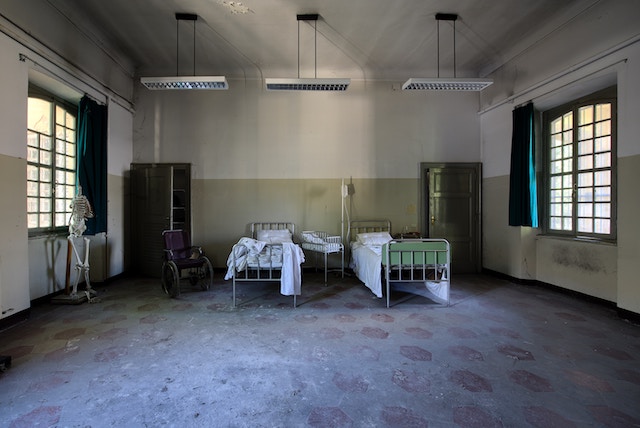This past year, I’ve been with two loved ones at the time of their passing, which was a bittersweet honor for me.
The first was that of my beloved father-in-law at the age of 91, after his lengthy battle with Parkinson’s disease. More recently, I was in the room when my dear friend Thomas Steinbeck (son of esteemed writer John Steinbeck) passed away at the age of 72 from chronic obstructive pulmonary disease (COPD).
In both cases, I was the only person present with any sort of medical background, and although I hadn’t practiced nursing in more than 30 years, I felt comfortable taking control during this emotional time for all the loved ones involved.
Death can be scary, even for those who’ve been exposed to it many times
Most often, we don’t know when a loved one will pass; but at other times, we will have a sense that time is running out. Regardless of the situation, it’s still a painful and transformative time for us when a loved one departs from the physical realm.
In both of my recent experiences, I did know that time was running out, so I was able to prepare myself psychologically for the loss. In The Tibetan Book of Living and Dying, Sogyal Rinpoche says that the reason the moment of death is so potent with opportunity is, “because it is then that the fundamental nature of mind, the Ground Luminosity or Clear Light, will naturally manifest, and in a vast and splendid way.” At this moment, we are finally liberated—or at least move on to the bardo (or intermediate state) between living and dying.
While preparing for the eventual loss of a loved one, we wonder if there are certain things we wish to tell them. Perhaps we reflect on their role in our lives and how life will be after they depart. Being by someone’s deathbed might also lend itself to contemplation and musings we may not normally think about at any other time.
Even though I knew these two men were passing, I’ll admit that there was a certain sense of denial about their mortality. They were strong men—war veterans—who’d witnessed and experienced much love and hardship. There were moments when I wanted to thank them for all they’d done for humanity at large, but there were also times (during their more lucid moments) when I yearned to have them answer my deeper philosophical questions. I refrained from asking those questions, which I now understand is because I didn’t want them to think I knew they were dying—even though logically I knew they did.
In fact, Thom told me a few weeks before he passed that he didn’t have much time left. As a Buddhist, he saw death as just another life transition, and the hospice nurse reminded us to give them permission to “let go.”
There are lessons to be learned from all our life experiences, and these recent deaths have reminded me of the importance of mindfulness and to “listen to the messages” that the dying impart on us. Knowing that hearing is the final sense to go, I took the opportunity to tell both of them how much they meant to me and how much I loved them. For that, I am grateful.
When faced with death, there are certain things to remember.
First, the meaning of life becomes very important.
Second, don’t sweat the small things. Focus on the needs of the dying. Be calm, and remind them they are not alone. Pay attention to verbal and nonverbal messages. Sometimes, they may be restless; understand that they might not want to be touched.
Third, it’s okay to give the person permission to die. Tell them that everything will be okay. In so doing, it’s amazing how much help we can offer and how much we can learn at the same time.
Remember, life is fleeting and precious. It should be treated as such until the very end.
Here are my Key Lessons from Death:
>> Death is more than a physical event.
>> Death is a time for transformation.
>> Life is precarious.
>> It’s important to be authentic.
>> It’s important to say what comes naturally.
>> It’s important to act compassionately.
>> It’s important to create a calm and loving environment.
>> It’s important to be present.
>> The dying are always in charge.
>> It’s important to send each other off with love.
>> The dying room is a sacred space.
~
Author: Diana Raab
Image: Paul Morris/Unsplash
Editor: Danielle Beutell
Copy editor: Yoli Ramazzina
Social editor: Travis May











Read 12 comments and reply